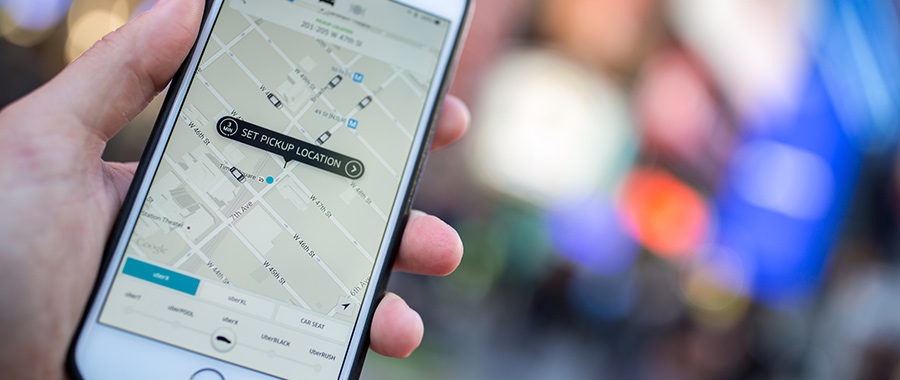The concepts of fate, predestination, and free will have captivated human thought and inquiry for centuries, transcending cultural and religious boundaries. Within the framework of the Bahá’í Faith, these ideas are intricately interwoven, offering profound insights into the nature of existence and human agency. This discourse is particularly illustrated through the perspectives of two Uber drivers, each representing divergent understandings of these philosophical tenets.
To engage with the complexities of fate and free will, it is imperative first to delineate the definitions of each term within the context of Bahá’í teachings. Fate is often perceived as a predetermined course of events, suggesting that our lives are orchestrated by a transcendent power. This notion can evoke a sense of inevitability, permeating one’s outlook and decisions. In contrast, free will connotes the inherent ability of individuals to make choices independent of external constraints or predetermined pathways. The dichotomy between these concepts raises significant questions: Are our decisions genuinely ours, or are they merely the unfolding of a predestined reality?
The narrative of two Uber drivers provides a compelling case study that illustrates these philosophical principles. Consider Driver A, who subscribes to a deterministic worldview. He believes that every ride he takes, every passenger he encounters, and every fare he earns are all part of a meticulous design crafted by an omnipotent force. In his view, his life is a series of events scripted and unavoidable. This perspective breeds a certain fatalism within him; he may endure frustrating encounters with difficult passengers or navigate through congested traffic with the belief that these challenges are divinely ordained. Consequently, he may display a passive attitude toward life’s adversities, attributing misfortunes to fate rather than examining the nuances of his own decisions.
On the other hand, we have Driver B, who perceives his role in the Uber ecosystem as a manifestation of free will. He engages with each passenger as a unique opportunity, believing that the connections he forges are a result of his choices and actions. For him, driving is not merely a vocation; it is an arena for self-expression and personal growth. Every interaction, whether mundane or transformative, is construed through a lens of agency and intention. His embrace of free will empowers him to navigate the unpredictabilities of life with resilience and purpose, fostering a proactive approach to challenges.
The contrasting perspectives of these two drivers—one aligned with fatalism and the other with an assertion of free will—illustrate a profound philosophical tension. In essence, how do the Bahá’í teachings reconcile these opposing views? The teachings espouse that while God’s plan is ultimately sovereign, humanity possesses the agency to act within that divine framework. This understanding posits that fate and free will are not mutually exclusive but rather interconnected aspects of a larger cosmic narrative.
Moreover, the Bahá’í perspective suggests that free will does not imply an absolute autonomy divorced from divine direction. Instead, it is an invitation to recognize the potential for personal growth and moral development in choices made. The wisdom lies in the balance: acknowledging the transitory nature of life while exercising personal agency to shape one’s path. This synthesis reflects the complexities of human experience, where the influence of divine will exists alongside individual initiative.
It is also essential to explore how the recognition of both fate and free will shapes ethical responsibilities. Driver A might evade accountability by attributing his circumstances to fate, thus excusing inaction in the face of social injustices or personal shortcomings. Conversely, Driver B, guided by the belief in his ability to effect change, may advocate for kindness and excellence in service, perceiving each passenger interaction as a chance to make a meaningful impact. This proactive mindset not only enhances his personal satisfaction but also contributes positively to the broader community.
At a deeper level, the Uber drivers’ choices exemplify a broader social phenomenon where individuals navigate their own existential landscapes with varying degrees of awareness about the interplay between predestination and autonomy. The ride-sharing scenario becomes a microcosm of life’s broader journey, where passengers, in their diversity, represent the multitude of experiences, challenges, and opportunities that individuals face. Each ride is, in essence, an amalgamation of individual narrative and collective existence.
Ultimately, the exploration of fate, predestination, and free will within the Bahá’í framework invites a nuanced appreciation for life’s complexities. It encourages individuals to embrace personal agency while acknowledging the harmonious role of divine influence in guiding their journeys. As evidenced by the contrasting approaches of Driver A and Driver B, the implications of one’s beliefs about fate and free will can significantly shape not only personal outlooks but also societal interactions.
In conclusion, the tale of the two Uber drivers serves as a poignant reminder of the interplay between fate and free will. It beckons individuals to reflect on their own belief systems, urging a pursuit of balance between divine providence and personal agency. The Bahá’í teachings illuminate the path forward, advocating for a life where both faith in a greater purpose and trust in oneself can coexist harmoniously, leading to enriched lives and communities.
